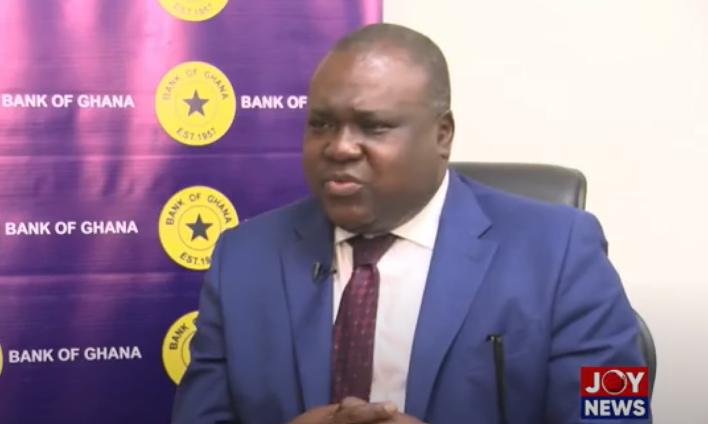The Bank of Ghana (BoG) has clarified that securing a bailout from the International Monetary Fund (IMF) would have been challenging without the implementation of the Domestic Debt Exchange Programme (DDEP).
According to the Director of Research at the central bank, Dr Philip Abradu-Otoo, the bank endured significant losses to help stabilise the country’s economy.
To address the economic challenges, the government initiated an IMF programme and introduced the DDEP, which resulted in some bondholders experiencing a reduction in their investments and coupons.
This programme was a critical step in securing the necessary support from the IMF.
In 2022, the BoG reported a loss of GHS 60.9 billion due to impairments that occurred during the domestic debt exchange programme. These impairments were a direct consequence of the financial restructuring efforts aimed at stabilising the economy.
In an interview with Citi TV, Dr. Abradu-Otoo highlighted the obstacles the government would have faced without the DDEP.
He emphasised that without the debt exchange programme, the government would have had to revisit other components of the DDEP, making the process even more challenging.
Dr. Abradu-Otoo attributed the significant losses suffered by the BoG in 2022 to the domestic debt exchange programme.
He insisted that the central bank took the biggest hit for the country, demonstrating its commitment to supporting the government's economic stabilization efforts.
“The biggest one was the impairment we had on the securities that we were holding. Just like any other individual, the BoG was also holding government securities.
"Out of that GHS 60.9 billion, GHS 48 billion of that were impairment. That is the losses that we incurred on our books, as a result of the DDEP.
He emphasised, “For the debt exchange programme, nobody had a haircut on the principal…for the BoG, we had the side haircut, and top haircut and the amount itself was cut into two.
"We had three, we had to do that because we needed that to secure the IMF programme. It would have been tough to move forward very fast. Then we would have come back to the drawing board and relook at the other parts of the DDEP," he said.
Latest Stories
-
Fugitive Zambian MP arrested in Zimbabwe – minister
24 mins -
Town council in Canada at standstill over refusal to take King’s oath
35 mins -
Trump picks Pam Bondi as attorney general after Matt Gaetz withdraws
47 mins -
Providing quality seeds to farmers is first step towards achieving food security in Ghana
58 mins -
Contraceptive pills recalled in South Africa after mix-up
1 hour -
Patient sues Algerian author over claims he used her in novel
2 hours -
Kenya’s president cancels major deals with Adani Group
2 hours -
COP29: Africa urged to invest in youth to lead fight against climate change
2 hours -
How Kenya’s evangelical president has fallen out with churches
2 hours -
‘Restoring forests or ravaging Ghana’s green heritage?’ – Coalition questions Akufo-Addo’s COP 29 claims
2 hours -
Ensuring peaceful elections: A call for justice and fairness in Ghana
3 hours -
Inside South Africa’s ‘ruthless’ gang-controlled gold mines
4 hours -
Give direct access to Global Health Fund – Civil Society calls allocations
4 hours -
Trudeau plays Santa with seasonal tax break
4 hours -
Prince Harry jokes in tattoo sketch for Invictus
4 hours

